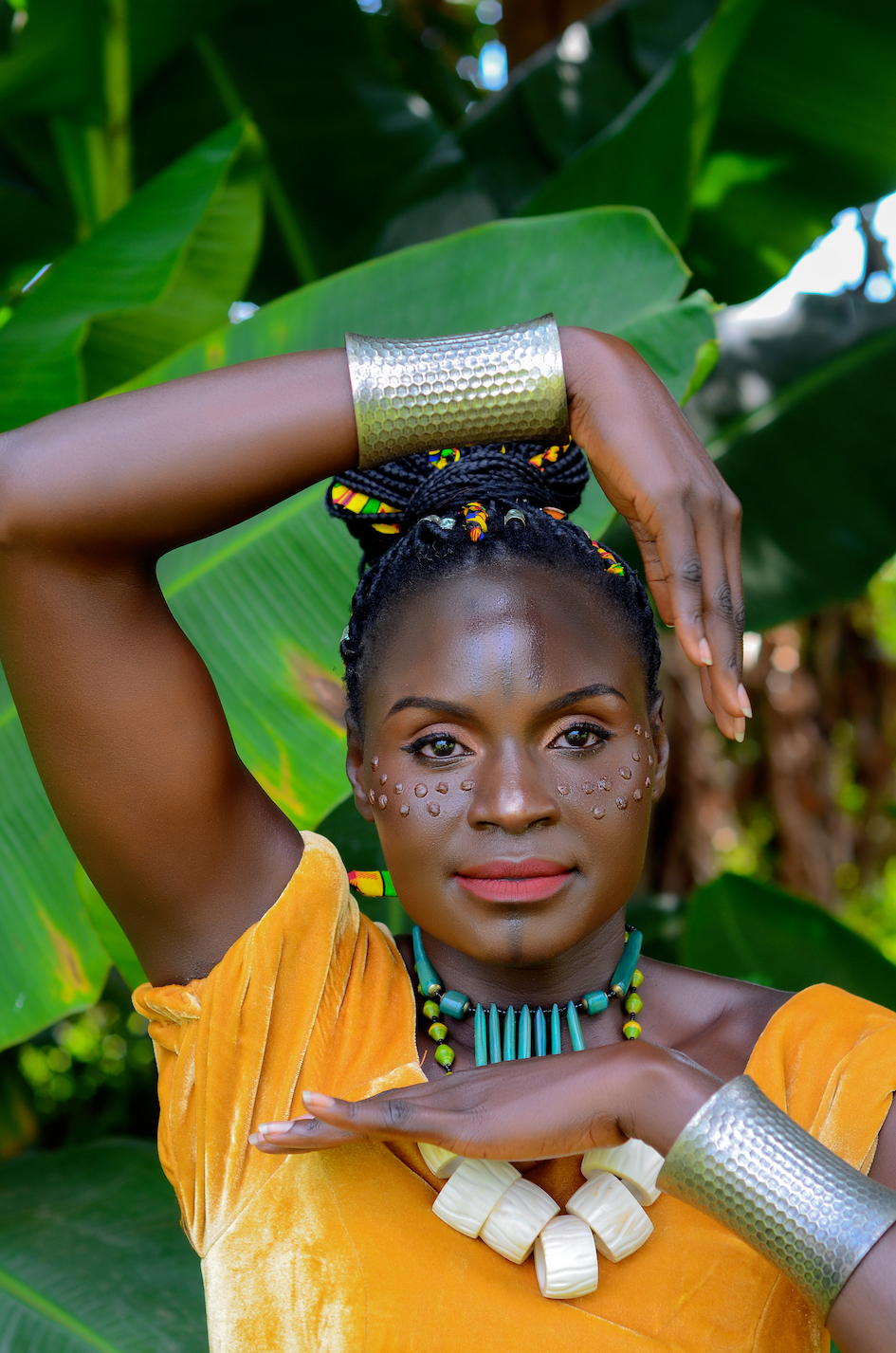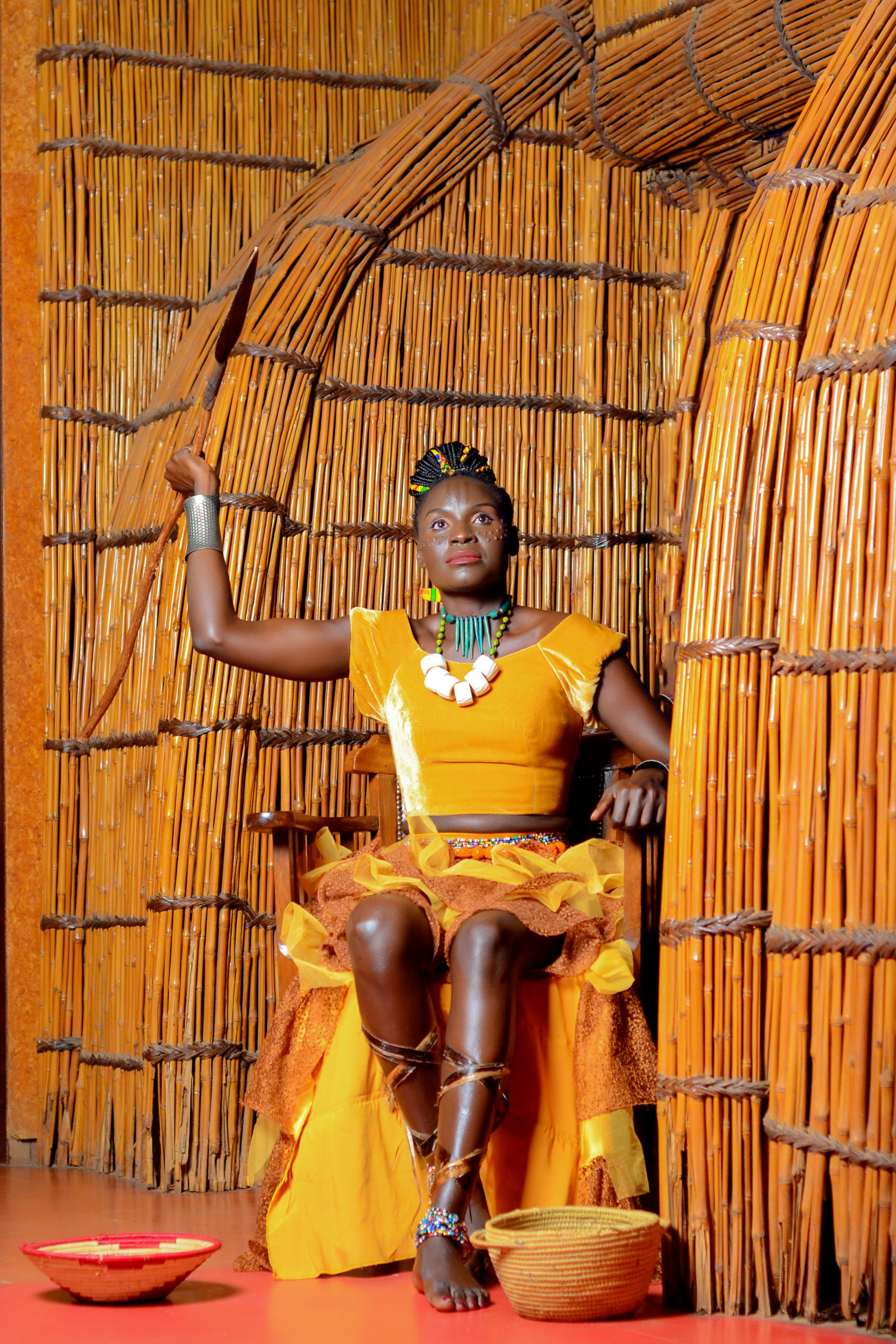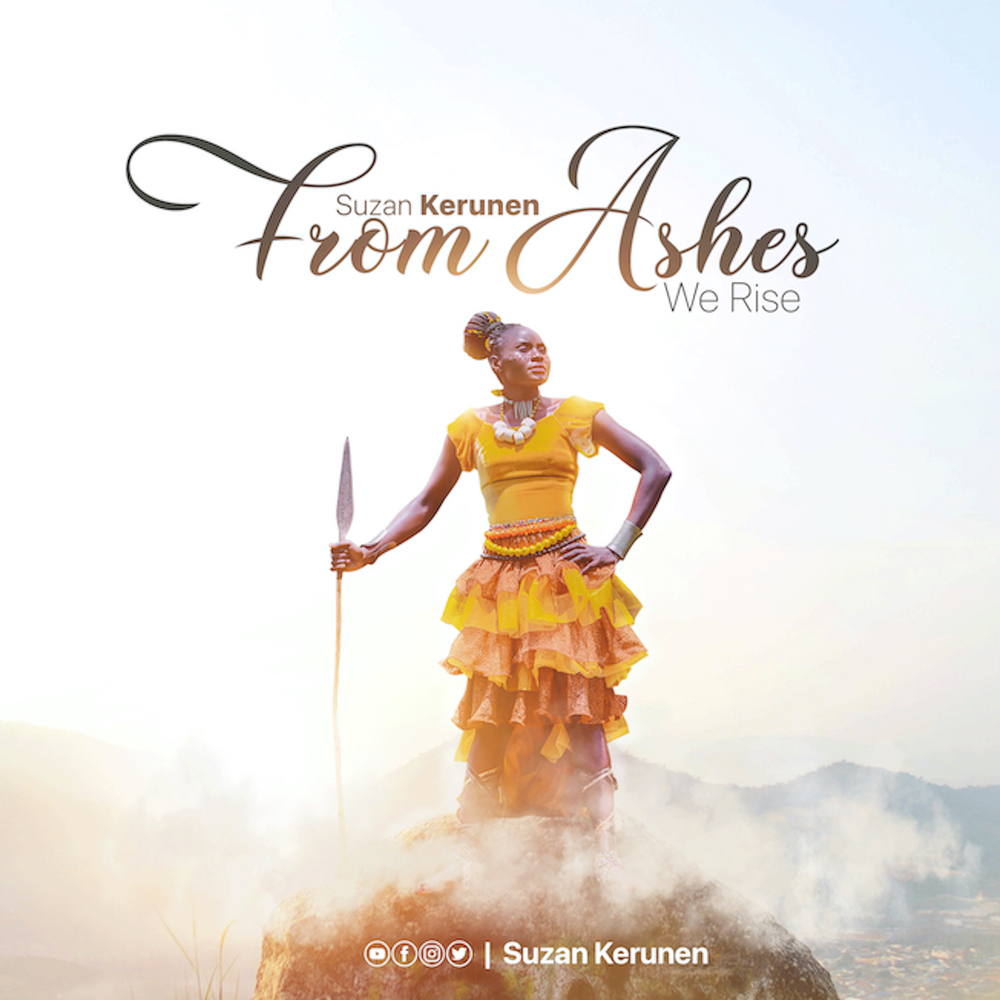Suzan Kerunen is an award-winning Ugandan contemporary singer and songwriter popular for performing mostly in her mother tongue Alur. A double Kora awards nominee, Kerunen debuted as a solo artist in 2006 with her thrilling album, ‘Nimefika’. The singer has since soared to greater levels, bagging several accolades and sharing the stage with legendary music stars such as the late Miriam Makeba, ASA, and Yvonne Chaka-Chaka.
Kerunen recently released her 5th studio album titled ‘From Ashes We Rise,’ in which she celebrates Africa with great inspiration from the effects of the Covid 19 pandemic.
Using a series of features from across Africa including Burundi’s Bernice the Bell, Uganda’s US based Kinobe Herbert and Mseto Nation, and South Sudan’s WD Alzain, the 14-track set concedes Suzan’s position as not only an African icon but a global phenomenon employing a lot of inspirational musical genres from around the world.

GLIM: Congratulations on your new album ‘From Ashes We Rise’. You created a beautiful masterpiece album during a lockdown. What inspired the album?
S.K: At the beginning of the pandemic I kept thinking, no this is going to pass, it will take a month and then it’s all going to get better but then as time went by, I realized the number of deaths kept piling up and people were dying all over the world. I got so depressed when I saw what was happening in Italy, and watching the news around Africa, I was looking at our girls who are stuck in the Arab world, and Ugandan students studying abroad who could not come home. So I decided to sing about such issues instead of dwelling on my own. I decided to empathize because much as I was in the lockdown, I was not in a very bad place, I was not sick, I was feeding, I was home safe, and I was thinking about the other people stuck and of course, the ones who are in hospital, on oxygen, people who had lost loved ones. That’s when I conceived the idea of doing “From Ashes, We Rise.”
GLIM: What was the creative process like?
S.K: So the creative process involved us working predominantly remotely because we could not get out to go record like I normally do. My recording sessions usually involve very big live settings with all my musicians. So we created a home studio and worked with producers around the world, especially for the collaborations. For the artists I worked with across the world, we kept on exchanging files which were of course very challenging, but very rewarding. For the final mix, which we just finished about a couple of months ago, we brought it down to the studio in a proper space to do the final mix and mastering.
GLIM: How different is this album from your previous projects?
S.K: This album is different because every song I think represents a different mood. There’s also a lot of language mix in this album. I employed French, Arabic and Kirundi. I also boldly talked about issues unlike before. I am kind of very polite in my lyrical content, so I tend to flower certain things and bring them out in a poetic way, which I did not do this time. So I touched on subjects like xenophobia and racism, human trafficking, climate change, and the refugee crisis. The other thing is, I employed a lot of inspirational musical genres from around the world, so I brought in the Arabic influence, reggae, then the African sounds that you hear are not predominantly from Uganda. I brought some from of course South Africa, Congo, and West Africa, then there’s also the fact that I also used a support band, the Museto band to do most of the creation with me. Previously, it was just me and my producer creating, but this time, I had the geniuses work on the creative process with me.
GLIM: Could you please talk about the cross-cultural aspect of the album?
S.K: The cross-cultural aspect of my music is really about my appreciation for African cultures, but also largely about my exposure as an artist. When I travel and meet people and interact with other cultures, I feel it’s important for me to bring something that I have received from them.
GLIM: Why is it important for you as an African artist to infuse music and activism?
S.K: Activism has been a part of me for a very long time. I can not just be singing beautiful melodies, I think it’s important for me to make my bit of change to the world where I can. So I am very passionate about activism and service to society.

GLIM: What message do you want to leave with this album?
S.K: For this album, I was looking at myself as the voice for Africa, and looking at the African continent like the phoenix bird getting out of the burning fire, rising from ashes after three days and becoming much stronger. “From Ashes, We Rise” is like a prophetic title for us to look at ourselves as a greater, better, Africa after all this mess has gone away, like the political mess, bad governance, diseases and school children not being able to go to school. I pray that time comes, I don’t know if I will be alive to witness it, but I pray that my children will.
GLIM: What was your most memorable moment creating the album?
S.K: My most memorable moment creating this album was how human beings can easily adjust to situations because never in my career or life did I ever imagine that I would be working at home and achieving so much, under very high stress level, fear, depression, and also getting to collaborate internationally, something I have never been able to do previously before travel restrictions were enforced.
Besides that, the quality of the work, the mood that I thought was very heavy came out to be very beautiful, it kind of gave this whole album variations and also the fact that I collaborated a lot with other writers on the album. I had my sister do most of the lyrics for me and Jude, my husband and producer also did most of the melody compositions, so it was also very highlighting for me and uplifting.
GLIM: What are you currently up to?
S.K: I am working to have a concert at the end of the year. I am looking at October to bring out “ From Ashes, We Rise”. Besides the concert, I am also engaged in a research project with the Sonic Matter, an open lab where I am doing a lot of research work aimed at archiving what I consider special and endangered music. I am working on archiving the sounds that I make which are also featured on this album and working on my first community The Batwa, as well as giving such cultures a platform to express themselves through one of my initiatives, the Pearl Rhythm Festival.
GLIM: What kind of impact do you want to leave with your music?
S.K: I want to be an artist who made lives better through my music and activism. I don’t want to just massage people’s emotions with sweet words and melodies, I want to create an impact with my music.

“From Ashes We Rise’ is currently available on all international music streaming platforms.

